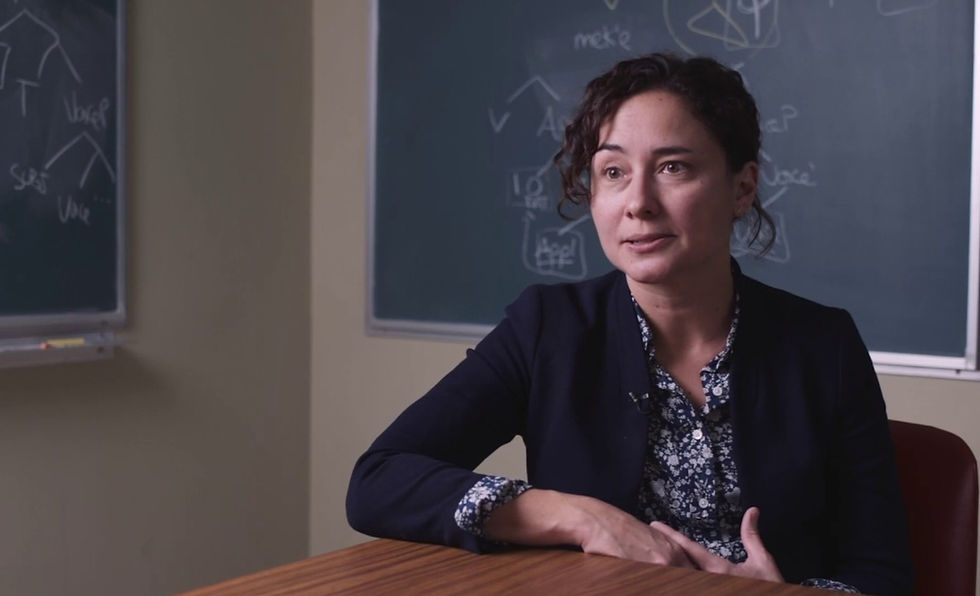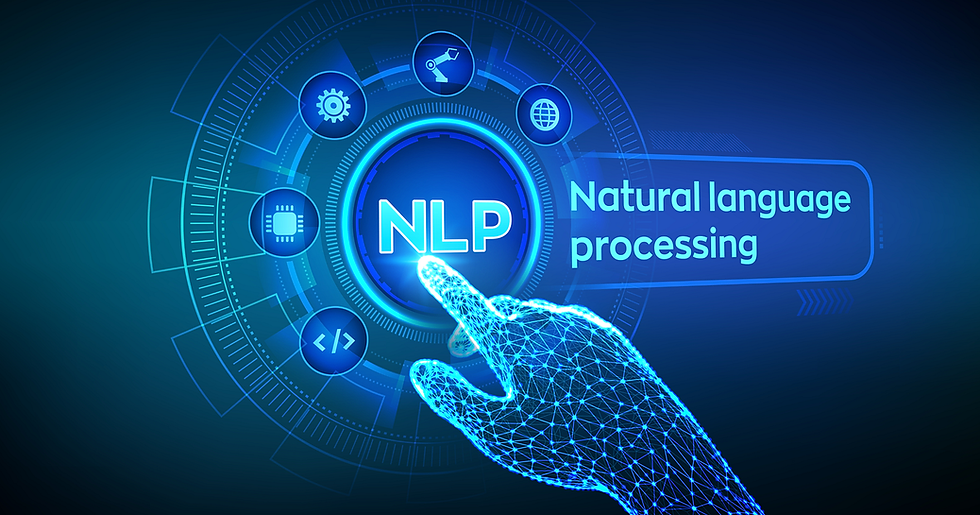May Observations
- Sophia Behar
- May 31, 2025
- 3 min read
Updated: Oct 13, 2025
Large language models have developed at such a rapid rate that they now sound extremely human-like, to the point where individuals who use them sometimes forget that they are conversing with a computer rather than a real person. Some people may in turn wonder whether LLMs are over time going to fundamentally change the nature of human language. This month, I had the opportunity to watch a Ted Talk given by Professor Jessica Coon, “Lessons from linguistics for the future of AI,” where she expresses her belief that the impact that LLMs can have on the nature of human language is actually quite limited.
Beyond being a professor at McGill University, Professor Coon served as the linguistics consultant for the 2016 movie Arrival, which portrayed the fictional story of a linguist named Dr. Louise Banks, who the government hired to find a way to communicate with aliens that had arrived on Earth.
In her TED Talk, Professor Coon explains that she has conducted extensive research on the similarities between the thousands of human languages that exist, and has identified three significant differences between human languages and large language models.
First, human language is constrained in a unique way. It is important to understand that, in linguistics, words are not arranged linearly. There is a hierarchal structure and underlying organization that is shared by all human languages, as depicted in syntax trees. This is even the case for languages that appear very different on the surface, for example, when it comes to their word order (subject-verb-object…). By simply “spinning” some of the nodes on a sentence’s syntax tree, the sentence can be transformed to follow the word order of another language. Interestingly, humans only seem to be able to learn language when the rules and patterns stem from this common underlying hierarchical structure. For example, when converting a sentence into a question, we naturally move a word like “will” to the beginning because of the word’s role, as opposed to other possible modifications. We do not simply choose to reposition the third word of a sentence every time, which would be problematic for different sentence lengths, and we similarly do not just reverse the words of sentences in their entirety. The last two options would be far easier for machines to learn than humans, and, in fact, research shows that humans are unable to learn languages if their rules rely solely on surface-level representation. Therefore, LLMs would be unable to differentiate the languages that are considered “possible” to humans and those that are not, as the machines are not constrained in the same way.
Secondly, the acquisition process varies significantly. Humans learn language from a young age with much less input information than LLMs do, and this information is often more “messy” since it contains errors and stumbles. Despite these challenges, almost all children have acquired one, if not two, languages by the time they are five years old. Simple exposure with no formal training or teaching is sufficient, leading some linguists to hypothesize that children do not start on a fully blank slate, whereas LLMs do.
Lastly, human language has a cultural value associated with it. More than half of the world’s 7000 languages are estimated to lose their last speakers by the end of this century, and with the loss of language comes a loss of identity, community and traditions. To LLMs, however, the power of language does not extend to this realm.
All in all, LLMs have already had and will continue to have an impact on many aspects of our daily lives; however, according to Professor Coon, the nature of human language will not be one of those aspects due to its inherent characteristics.

Credit: McGill University
Works Cited
Coon, Jessica. “Lessons from Linguistics for the Future of AI.” TED Talks, Oct. 2024, www.ted.com/talks/jessica_coon_lessons_from_linguistics_for_the_future_of_ai. Accessed 31 May 2025.
“Jessica Coon.” MULL Lab, mull-lab.org/jessica-coon/. Accessed 31 May 2025.


